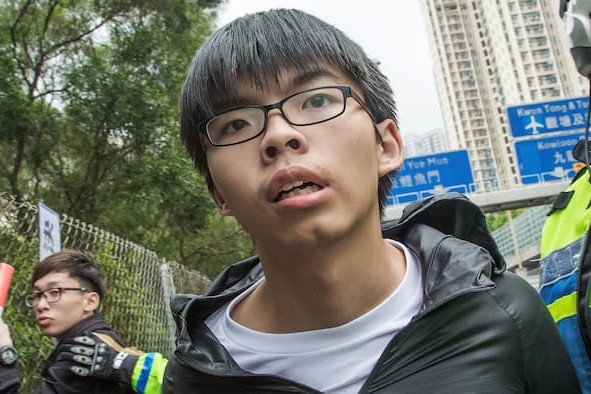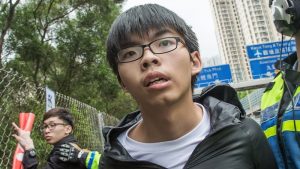Hong Kong democracy activist turned away from Thailand

Financial Times, 5 October 2016

By Michael Peel — Joshua Wong, the Hong Kong pro-democracy activist, has been barred from entering Thailand and sent home in the latest clampdown by military-ruled Bangkok on anti-Beijing dissidents.
A deputy commander of airport immigration police was quoted by Thai newspaper The Nation as saying Wong had been blacklisted “as requested by China”.
Mr Wong said authorities at the Thai capital’s Suvarnabhumi airport told him he was “blacklisted” after detaining him on his arrival late Tuesday to attend a commemoration of the 40th anniversary of a notorious massacre of Thai students.
At a press conference on his return to Hong Kong on Wednesday, he said he was “very disappointed” in the Thai government but glad to have avoided the fate of a dissident Hong Kong bookseller who disappeared from the kingdom last year and later turned up in custody in China.
Bangkok has drawn criticism from rights groups over its role in previous Chinese political cases on its soil, including the forcible repatriation last year of more than 100 members of the Uighur ethnic group.
Sophie Richardson, China director for Human Rights Watch, said Mr Wong’s detention “sadly suggests that Bangkok is willing to do Beijing’s bidding”.
Prayuth Chan-ocha, Thailand’s coup leader turned prime minister, said the reason for Mr Wong’s enforced return home was “China’s issue”.
Netiwit Chotipatpaisal, a Thai student activist who had been due to meet Mr Wong at the airport, posted on Facebook that his guest had “been confined at the immigration in Thailand because there’s a request from [the] Chinese government to [the] Thai authority”. Mr Netiwit did not respond to a request for further comment.
Thailand’s ruling military junta gave “no instruction or order” in relation to Mr Wong, a government spokesperson said. But he also said the junta was aware Mr Wong was “active in resistance movements against other foreign governments” and that these activities could “affect Thailand’s relations with other nations” if Bangkok allowed them to take place.
Mr Wong said he had been given a written document claiming he had violated the immigration act. Officials rejected his request to call his lawyer and refused to give a legal basis for their actions, he added. “I was locked up in a cell for 12 hours without any explanation,” he said. “At 11am the authorities finally said they would deport me.”
Mr Wong, who turns 20 next week, came to prominence two years ago as a student leader in the “umbrella movement” of pro-democracy protests in Hong Kong, which has been a semi-autonomous territory of China since the handover from Britain in 1997. In August, a Hong Kong court convicted him over his role in the months-long demonstrations and sentenced him to community service.
Mr Wong’s case also highlights the clampdown on free expression by the Thai junta that seized power in May 2014. The Hong Kong activist had been due to attend an event at Bangkok’s Chulalongkorn University to commemorate the October 6 1976 massacre of dozens of students and other protesters at Thammasat University across the city by Thai state forces and far-right royalist mobs.
Mr Netiwit, one of the commemoration’s organisers, told the Financial Times in a recent interview that Thai critics of military rule needed to develop “new methods, as Hong Kong students did”.
The Thai generals tolerate some mild criticism but they have stifled most public protest by detaining campaigners and pulling in hundreds of other opponents to military camps for “attitude adjustment”.
https://www.ft.com/content/e9de2b56-8a98-11e6-8cb7-e7ada1d123b1

